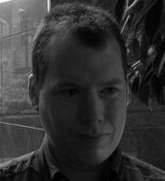Along with its mix of well-known and unusual repertoire, the Seattle Chamber Music Society annually commissions a brand-new work for its Summer Festival. Monday evening's programme unveiled the selection for 2015: Cantus by the Pulitzer Prize-winning composer Steven Stucky, who has gained prominence primarily as an instrumental and choral composer. (His first opera – a brilliantly witty yet at the same time touching one-act buffa to Jeremy Denk's libretto improbably "dramatising" Charles Rosen's The Classical Style – will receive its full stage première next week at the Aspen Festival.)
The only strings attached to this commission, so to speak, were violin (Andrew Wan) and cello (Ani Aznavoorian) – part of Stucky's Pierrot-ensemble scoring, which also calls for flute and clarinet (the McGill brothers, Demarre and Anthony) and piano (Andrew Armstrong), along with tuned percussion (Robert Tucker).
Cast as a single, seamless movement, Cantus is on one level a gorgeous glorification of melody, with instruments (principally the violin) playing the role of the singing voice. Yet what is being sung remains for the most part paradoxically elusive, distant, "other" – at times straining towards a sustained single note, at others proliferating by means of finespun ornamental elaboration, an outpouring that wavers between ecstasy and sighing lamentation.
What makes Cantus so involving is that Stucky devises a theatrically compelling structure for how his melody unfolds, generating tension as he stages a gradual descent of the melodic line from an initially piquant high register to the lower depths plumbed by cello, bass clarinet, and piano (a strategy somewhat reminiscent of Wagner's Lohengrin Prelude – even including the gravitational pull of A major, Lohengrin's key).
And Stucky is a masterful colourist who exploits his sextet of players to paint with an orchestrally rich palette of sonorities: bell-like chimings and sparkling flecks from percussion and piano create a mysterious aura to suggest something imminent, an event horizon we long to cross. Along the way, miniature dramas play out briefly in the form of exquisitely choreographed duets (flute and violin, cello and clarinet).
Cantus evokes something akin to the bejewelled textures and rhythmic precision of a composition by Ravel, or even Boulez, but in a tonal context and, in lieu of Boulezian hyperactivity, at a slow pace that only heightens the taut sense of expectation. This excellently rehearsed ensemble performed with unflagging conviction and flawlessly executed the thrilling climax of unison melody which is the denouement of the piece.
It's a pleasure in itself to encounter a winning contemporary composition. But further dividends accrued in the context of the 19th century pieces framing Cantus, which helped illuminate the Romantic impulse in Stucky's new score. The programme began with a dynamic account of Mendelssohn's challenging Second Cello Sonata. Pianist Inon Barnatan was a considerate partner, judiciously balancing dynamics with Johannes Moser's swashbuckling, extroverted cello playing in the outer movements. Theirs was a Mendelssohn clearly on the Romantic side of the spectrum, though the buzzing virtuosity of the finale also showed poise and grace.
And the emotionally meandering character of Cantus in turn set the stage for the ambiguities of Brahms's Op.111 String Quintet of 1890. This score requires subtle rhythmic articulation and fluidity, which was a notable strength of this interpretation, even if the finale could have used a touch more fire.
The players generated a cataract of sound in the opening, with (Seattle Symphony principal) Efe Baltacıgil's cello like an oarsman steering his colleagues through the rapids. Overall the balance, too, was given keen attention, which is essential for Brahms' magnificently integrated writing in this Quintet – a piece as ensemble-oriented as a play of Chekhov.


